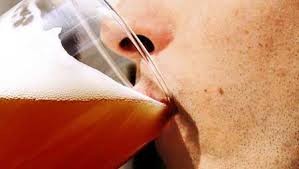Inpatient medical detox facility proper identification

Inpatient medical detox facility proper identification marks the beginning point in securing quality treatment
Inpatient medical detox facility proper identification: Choosing wisely
The frustrations that are associated with alcohol and drug addiction can make one to jump into conclusion without really getting the facts correctly. It is true that when one is struggling with any kind of addiction, treatment is very necessary and detoxification is very instrumental in laying the foundation for proper treatment. The challenge that many people often have includes that of identification of the right experts for the job. It is important to note that when the right choice is not made from the beginning, the whole process is likely to be even more frustrating, demoralizing because the desired objectives may not be realized. In our previous article we did mentioned that detox is very important for individuals suffering from alcohol and drug abuse. We also noted that for this to be done effectively, certain protocols must be observed. In view of this and so that we avoid making costly mistakes, we want to focus the discussion of this article on inpatient medical detox facility proper identification.
This is because it is emerging that not all that glitters is not gold. Many inpatient facilities are business oriented and are focusing more on the financial returns than the key objective of transforming lives. To that effect, doctor Dalal Akoury who is an addiction expert of several decades and also the founder of AWAREmed Health and Wellness Resource Center is going to help us in unlocking the facts about what we must look for, and questions we must ask to get value for our money and eventually free ourselves and loved ones from the scourge of addiction.
Inpatient medical detox facility proper identification: Making inquiries by asking certain relevant questions
To start us off, doctor Akoury is highlighting certain things to ask for before going to an inpatient medical detox facility. She says that it is very important that anyone seeking medical detox at an inpatient facility should ask the following questions and must ensure satisfactory responses from the people concerned:
- What is the medical protocol for the substance from which the person will be detoxing?
- Enquire of to know about changes if any that will be made to the medical protocol if the patient reacts differently to the withdrawal than earlier expected?
- What is the length of time like for instance does the facility offer 24-hour medical supervision?
- Trace the statistics of the facility and find out what percentage of people who start a medical detox that actually completes it?
- What is the estimated time required for the detox requested?
- Will the person leave the medical detox facility on new drugs?
- Can the person walk outside and what is the surrounding environment like security wise in terms of availability of potential triggers?
- Enquire if the facility has some prohibitions like are there any restrictions on smoking, watching television, making telephone calls, eating meals and internet access?
- Assess the level of privacy within the facility. That is to say does the person have a private room?
- Read wide and find out for yourself about the experiences your predecessors have. Find out what are the comments of former patients about their experience at the facility?
There are a lot one will need to find out and this is just a pointer to the approach one should always take in identifying the right inpatient medical detox facility. Depending on the way you’ve responded to the above, you can carry out a self-evaluation on the suitability of the facility. And never forget seeking for help from doctor Akoury progressively.
Inpatient medical detox facility proper identification: Choosing wisely
http://www.awaremednetwork.com/








